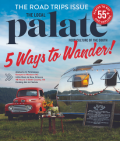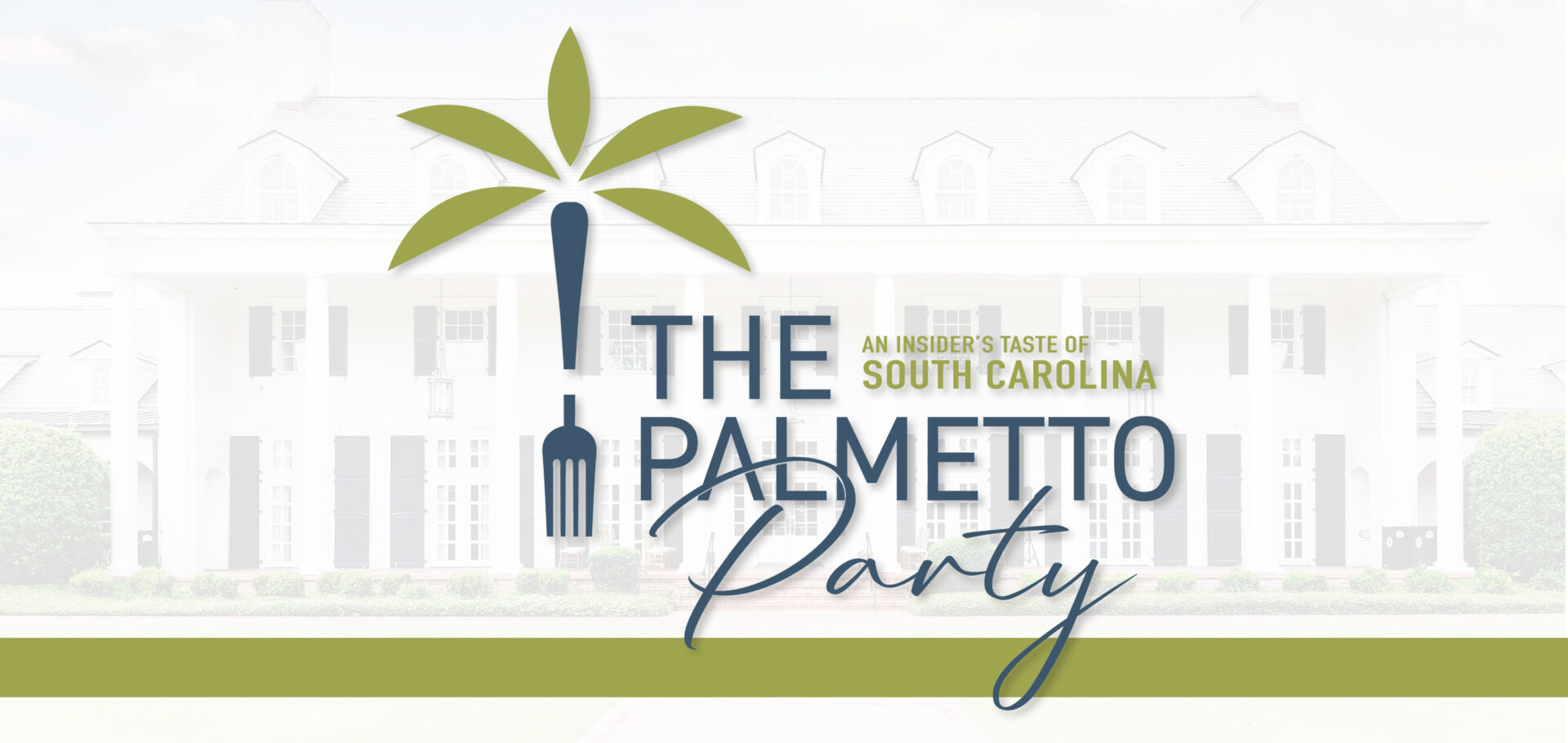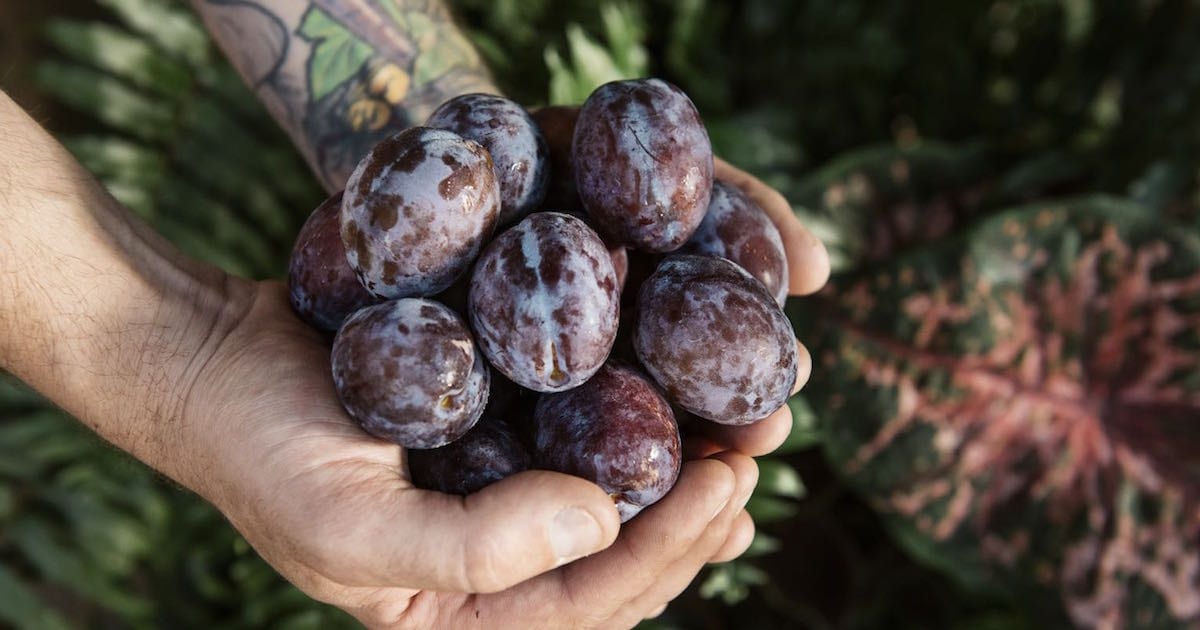How one mountain brewery is reviving the spirit of a community almost lost to history.
In the early twentieth century, a surge of hydroelectric power swept Appalachia. As the mountains modernized, a small sharecropping community on the idyllic banks of the Linville River in Western North Carolina succumbed to a flood caused by the creation of Lake James. Its name, Fonta Flora, faded into obscurity, a footnote in state archives.
A century later, a new current is flowing through these parts: craft beer. In its wake, Fonta Flora has risen again—and this time, it’s riding the wave. Now a tiny brewery with a big thirst in small town Morganton, some fifteen miles from the site of the doomed village, Fonta Flora has resurrected more than its namesake.
This three-and-a-half-barrel brewhouse has emerged as a craft-beer darling on the national—and even international—stage for its Appalachian wild ales and brewer Todd Steven Boera’s obsessive use of local and elusive native ingredients. In the process, Fonta Flora has become an anchor to the revitalization of downtown Morganton, a sleepy foothills town of 17,000 tucked between Asheville and Charlotte. Inside the brick-walled taproom, a plaque hangs proudly proclaiming the brewery as the Burke County Visitor Attraction of 2017, no small feat in a county still dry outside of city limits.
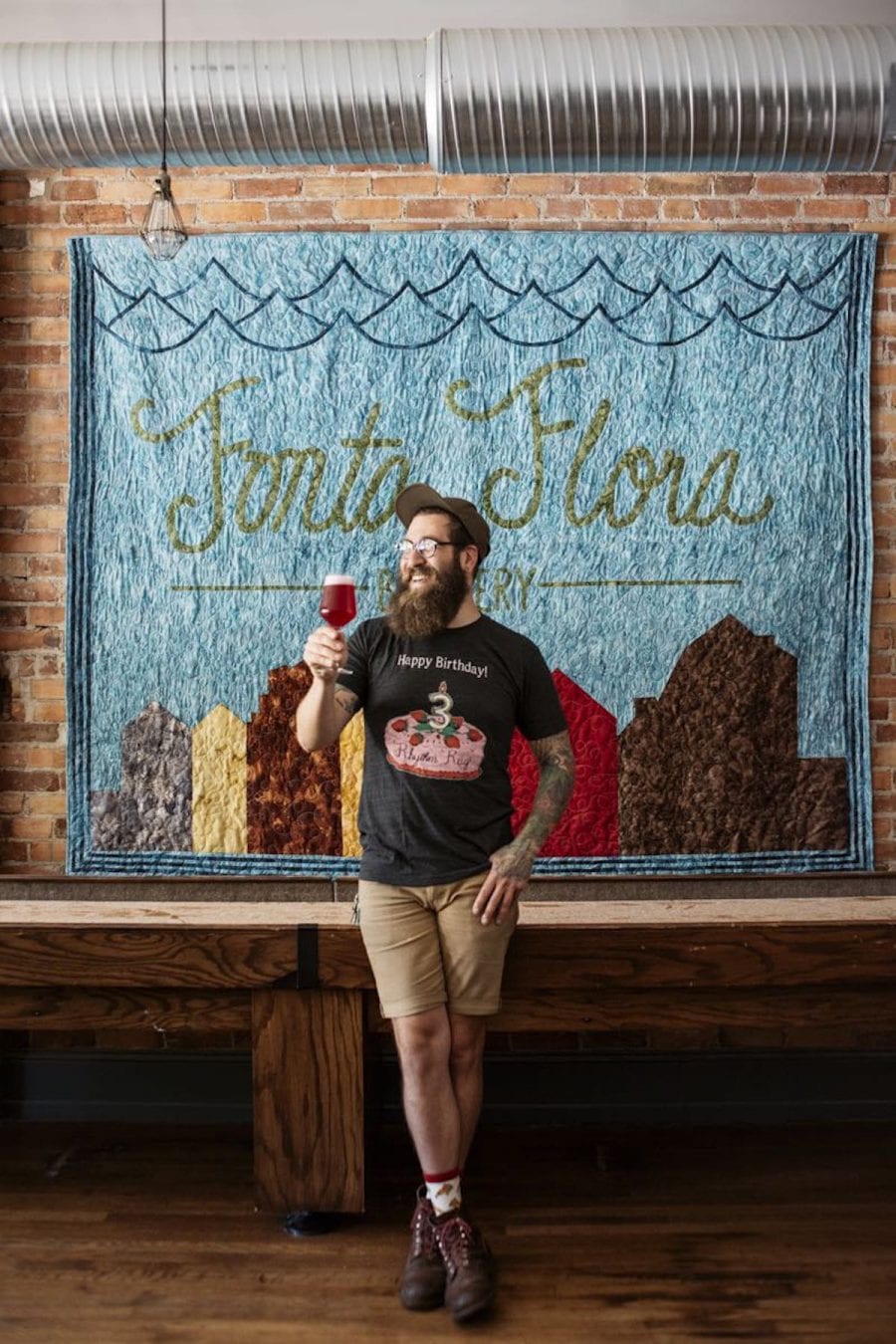
Each June, upwards of a thousand beer drinkers flood the grassy knoll of its courthouse square for the brewery’s State of Origin Festival, a celebration of indigenous flora and fauna during which beer drinkers line up to sip ales brewed with wild plums or juniper.
Yet its latest resurrection is the most ambitious. During the summer of 2017, Fonta Flora laid the foundation for its first expansion—a farmhouse brewery situated on the grounds of a regional landmark, the historic Whippoorwill Dairy Farm outside Nebo, North Carolina, just three miles from the original Fonta Flora settlement.
“Our brewery is returning home,” says co-owner David Bennett.
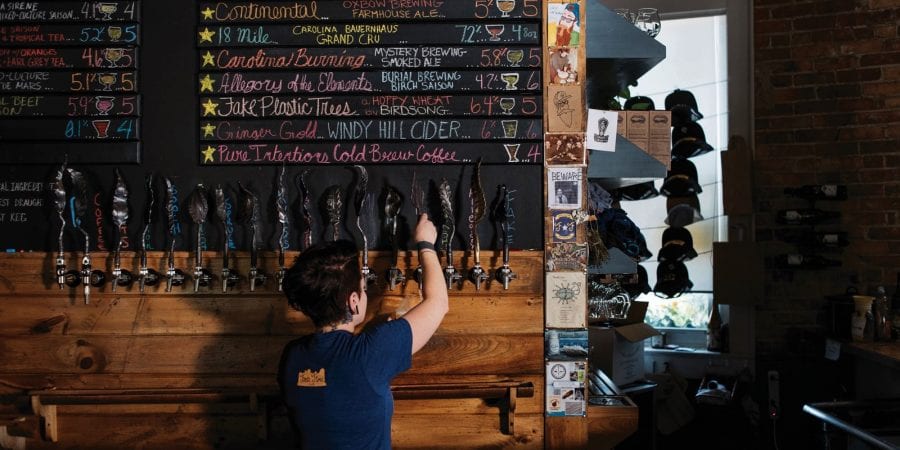
REDEFINING MOUNTAIN CULTURE
Fonta Flora has always been as much about place as it is about beer. “We’re trying to encapsulate a time and an experience more than anything,” says Boera. First and foremost, that means planning his beers around the harvest. “We showcase what’s in season. It’s a call to what our bodies are yearning for, but in a liquid form.”
The brewery’s official mission statement ratchets up this ideology further, setting its sights on integrating the “soul of agriculture with the artisanship of zymurgy”—a Greek term for the science of fermentation.
Though Fonta Flora rotates taps too frequently for a set menu, one repeat performer is a bright pink saison brewed with local beets, called Beets, Rhymes and Life. The earthy brew took gold in the 2015 Great American Beer Festival. Boera has also brewed carrot IPAs, a cream ale laced with foraged ramps and local grits, as well as saisons and rustic farmhouse ales starring everything from dandelions—leaves, stems, and flowers—to North Carolina scuppernong and Bloody Butcher corn, a local heritage crop making a comeback. In 2016 alone, Fonta Flora shelled out $30,000 on local fruits and vegetables.
The beers that get Fonta Flora the most attention—and lines that snake down the street for bottle releases—are the Appalachian Wild Ale series, fermented with mixed cultures. The heart and soul of Fonta Flora, these often heavily fruited sour ales draw from local ingredients as well as regional culture—“whether it’s Appalachian folklore, foraged ingredients, or foods from here,” says Boera, who looks to old-fashioned recipes like persimmon pudding.
Case in point: a beer like the Carolina Custard Appalachian Wild Ale, brewed with a blend of North Carolina grains and creamy pawpaw fruit fermented in white wine barrels. A couple of years ago, when Boera stumbled on kiwis growing in the mountains near Morganton, he bought out the farmer and created the Vestige Bloom. The Need a Hug gets its tartness from “a massive amount” of local blueberries and elderberries. The thirst for Rhythm Rug—a fermented fantasia of strawberries—is so voracious, more than a thousand bottles sold out in less than two minutes during last November’s online pre-sale.
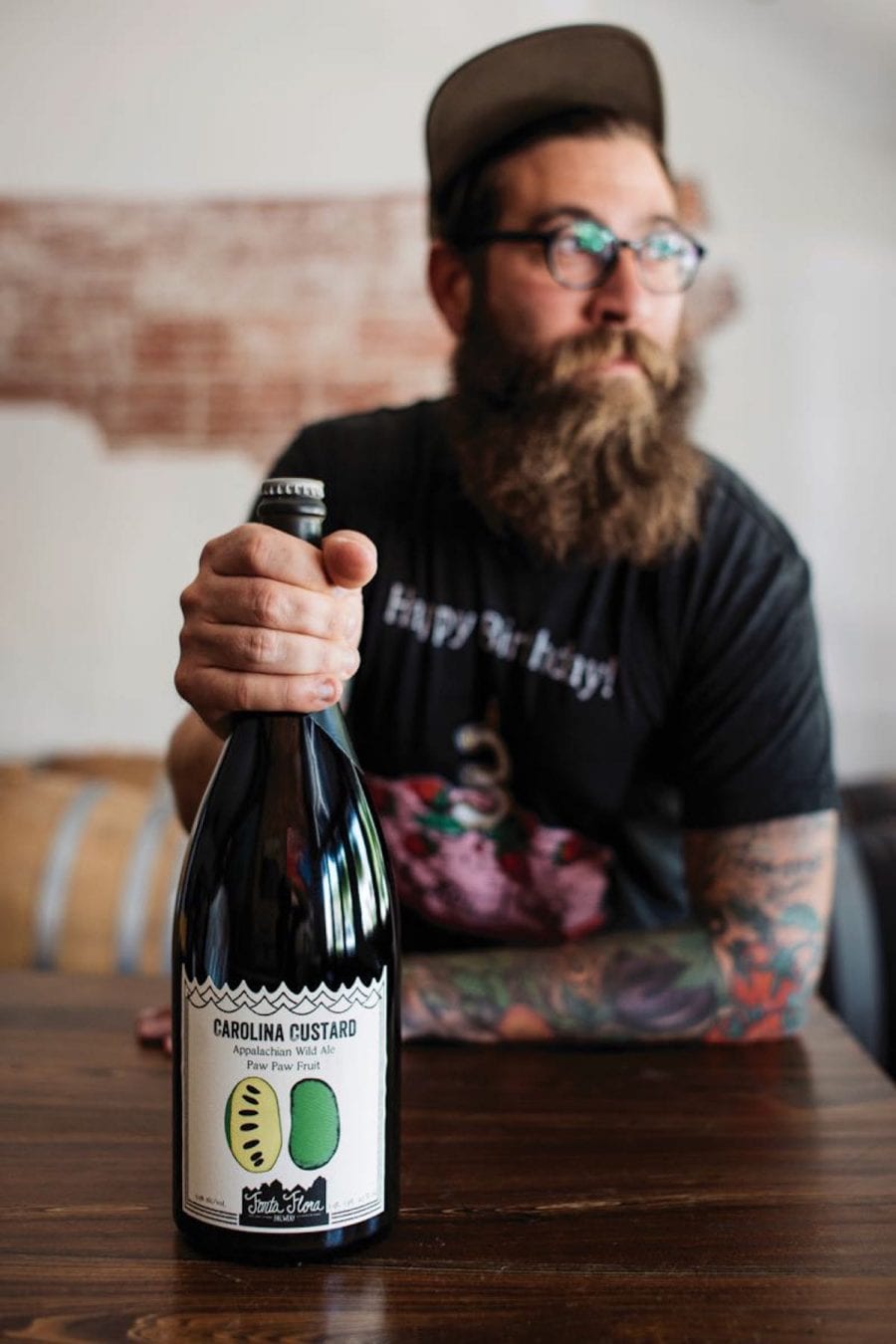
Back in 2014, Fonta Flora toasted its first anniversary with the release of Echoview Estate Ale, which became the first beer to achieve certification by the Appalachian Sustainable Agriculture Project. Every last one of its ingredients came from Weaverville’s Echoview Farm, from hops and barley to blackberry honey and lemon balm. Riverbend Malt House scooped up the grain with an antique combine, raked it by hand on the floor of their Asheville facility, and dried and kilned it into malt.
Alongside Fonta Flora’s signature wild ales and more traditional beers—like its dry Irish stout that earned the brewery its first Great American Beer Festival gold medal—these days the tap list typically includes something called a kvass, a funky low-alcohol beer brewed from bread. Fonta Flora is one of a handful of craft breweries on the front lines of bringing this old-world fermented drink to the U.S. (Last December, Chicago’s craft king Goose Island Beer Co. released its first batch.) Boera is as dedicated to pushing the envelope as he is to collaboration with like-minded folks both near and far. The Brezelvass started with one hundred pounds of rye pretzels from Hendersonville’s Underground Bakery, a fellow regional business with a cult following. For another batch, he teamed up with Marshall baker Tara Jensen, a wunderkind with a brick oven and more than 99,000 Instagram followers.
“Kvasses are super cool beers and we’ll never stop making them, but unfortunately people don’t really care about them,” Boera says. “The local ingredient thing gets us a lot of attention because it’s hip right now, but ultimately unless it’s a beer style people actually want to drink, nobody gives a shit.”
What fans do care about are those fruity, mixed-culture wild ales. In 2016, Fonta Flora unveiled the Appalachian Wild Ale Society; hopeful members signed up and were selected by random lottery for such perks as exclusive limited-batch releases, a members-only t-shirt and ID card, and the ability to purchase other Appalachian Wild Ales without waiting in line (or having to click and refresh their Internet browser). At $200 a membership, the backlash on social media was swift and cruel. Even so, the society sold out handily, and Boera penned a thoughtful response statement—and added some incentives to sweeten the deal for the crush of loyalists who had entered the lottery.
Boera insists that it’s not novelty, or beer sales, that drive his love of sour ales. “Those beers offer a lot of scientific as well as artistic exploration,” he says. “I’ll spend the rest of my life trying to figure out what makes those beers what they are. Every single time, the process is insanely romantic and satisfying.”
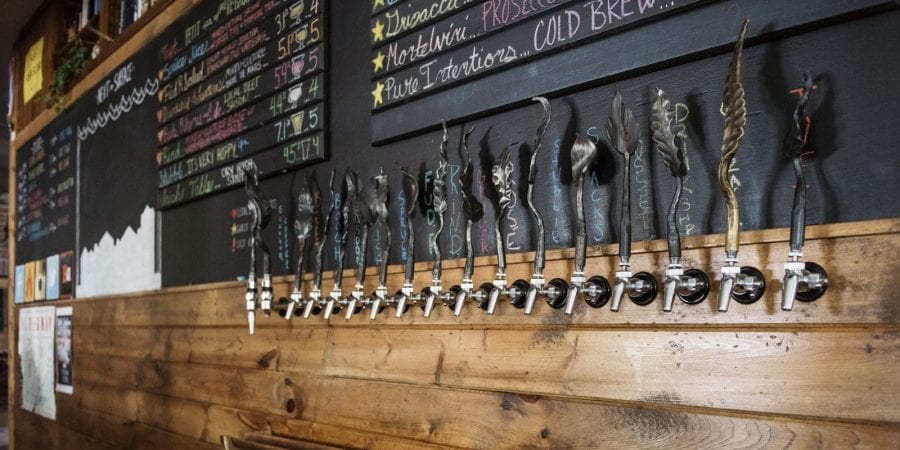
BETTING ON THE FARM
By some measures, the origin of Fonta Flora is so ordinary, it’s extraordinary. Three small-town guys walked into a bar, they drank beer, and they talked about their hare-brained dreams of opening a brewery. A similar scene probably unfolds at countless bars across America every night.
The difference: not every up-start brewery has Todd Steven Boera. In 2016, beer writer Justin Kennedy dubbed him the “bearded, bespectacled face of the Appalachian craft beer movement.” A tattooed cornucopia unfurls down his arm like the spread on a farmers market table.
Boera moved to Western North Carolina a dozen years ago to attend Warren Wilson College, a crunchy liberal-arts school on the outskirts of Asheville known for its century-old working farm. After his freshman year, he took time off to join a friend managing a farm in Belize, where he got a ground-to-canopy immersion in permaculture. A kid from inner-city Cleveland, Boera found himself enamored. When he got back to school, he threw himself into sustainable agriculture. (“The ‘ag’ kids at Warren Wilson are, like, the really cool kids,” he says.) Along the way, he got into home-brewing and, upon graduation, landed a job as assistant brewer at Morganton’s Catawba Brewing.
In 2013, he met a pair of entrepreneurial brothers, David and Mark Bennett, who grew up in Morganton. Together the men set out to create a gathering space that celebrated all things local. They called it Fonta Flora after a librarian tipped them off to its long-forgotten name and history. “When you start something, you create an identity and culture,” David Bennett says. “We wanted to make sure it stood for what we believed in.”
Opening a farmhouse brewery was always part of the plan. Boera often admired the old Whippoorwill Dairy Farm while biking around Lake James; one day, he noticed a for-sale sign. The accompanying price tag proved well out of their means, so the Fonta Flora guys approached a local land trust, Foothills Conservancy, about procuring an historic property to preserve. When the conservancy suggested Whippoorwill, the arrangement felt like nothing short of serendipity. “I get goose bumps every time I go out to the farm,” Boera says.
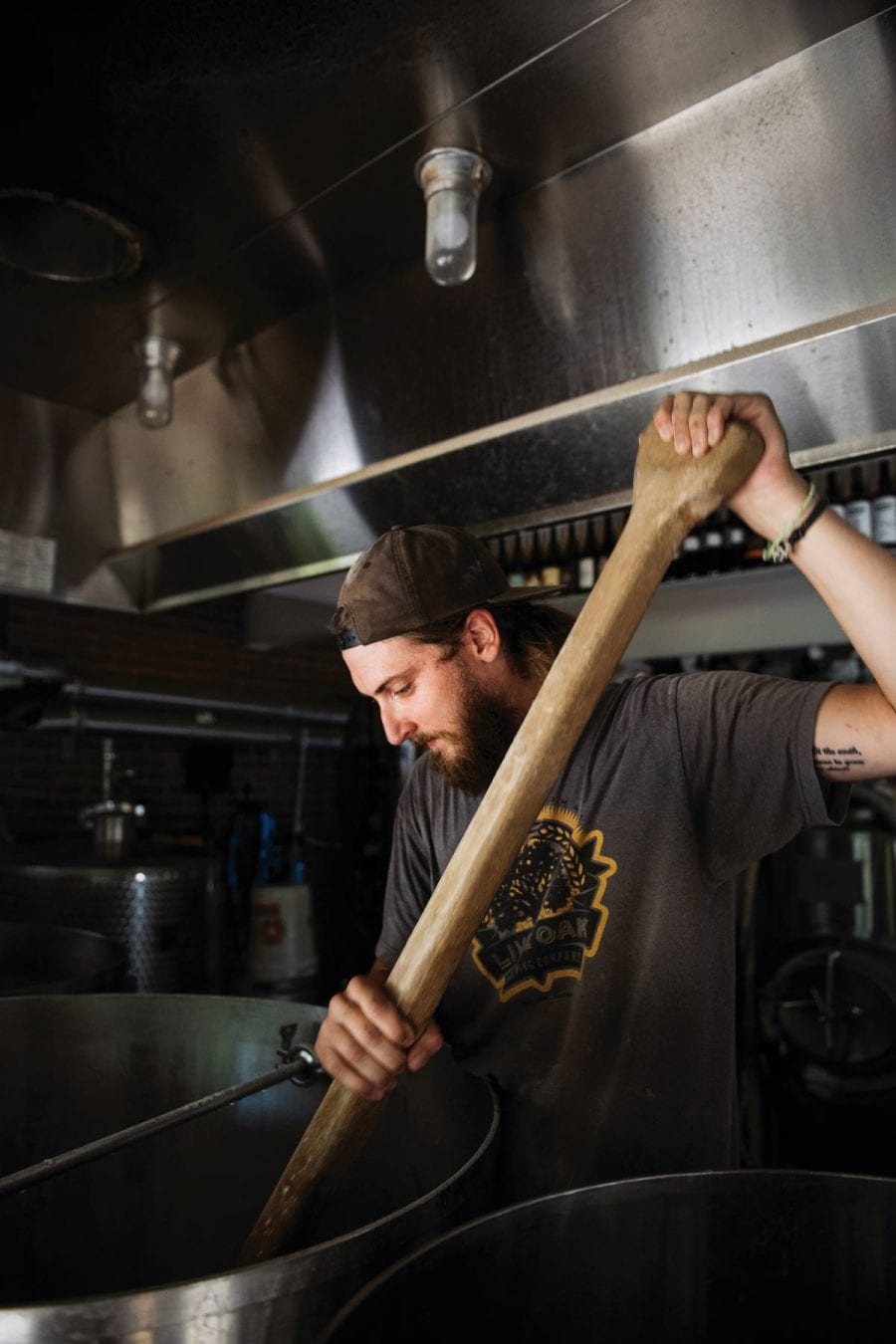
All told, Foothills Conservancy purchased forty acres of the scenic farm to donate to adjoining Lake James State Park, while Fonta Flora took ownership of eight acres fronting Highway 126. Along with restoring and converting the old stacked-stone barns and milking parlor into a brewhouse that will quadruple their production capacity, Fonta Flora agreed to convey a conservation easement to Foothills Conservancy that will permanently protect the land.
Construction began in 2017—and so did planting, starting with a modest orchard of persimmons, pawpaws, and elderberries. At the heart of the farmhouse brewery will be a flat-pan coolship—essentially a fermenter with the top down—which will allow the natural yeasts and bacteria wafting through the fresh farm air to inoculate beer that Boera muses he may have to call “Appalachian spontaneous ales.” Access to wells on the property will provide a virgin water source, says Bennett, who describes Fonta Flora beer as “a living, breathing thing, with unique characteristics from batch to batch.”
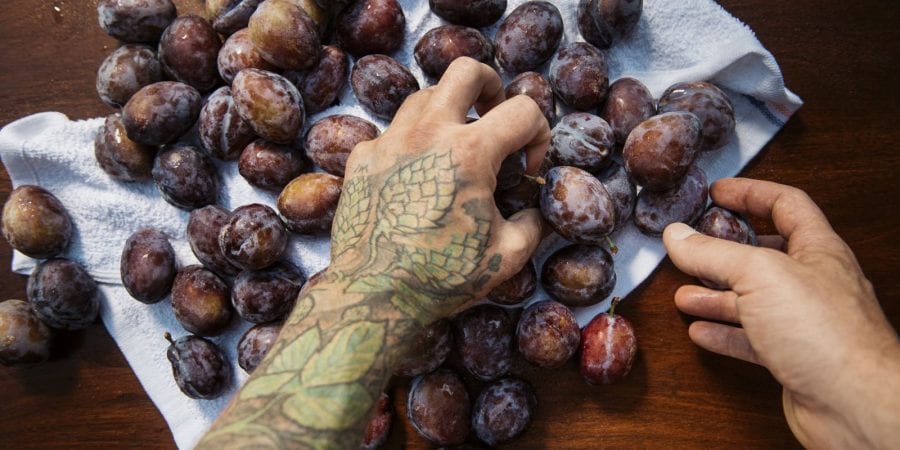
LAYERS OF FLAVOR
Lost history breathes new life. Two brothers say cheers to their hometown. An inner-city beer lover goes out to pasture. The land of moonshine cultivates a new Appalachian style of beer. The locavore movement meets the craft beer juggernaut. A hallmark of small towns everywhere, the corner pub, begets the hottest new thing—a farm brewery.
At Fonta Flora, new story lines are always bubbling up. And just like its beers, all these unlikely components manage to meld together, deepening the experience. After all, in matters of flavor, it all comes down to balance.
This story was originally published in the November 2017 Issue.
share
trending content
-
Chefs Heading To The Palmetto Party
by TLP's Partners -
A First Look at Fancypants | Listen
by Erin Byers Murray -
How to Build the Perfect Cheese Board | Video
by Maggie Ward -
5 Things to Do in Bath County, Virginia
by TLP's Partners -
Bearing Fruit at Big Apple Inn
by Erin Byers Murray
More From Drinks
-
7 Wines for Sipping Outside
-
Wines You Should be Drinking in 2024
-
Bartender’s Tips for Frozen Cocktails
-
Bold, Batch-Sized Low-Alcohol Drinks
-
Memorial Day Cocktails for Summer Sippin’
